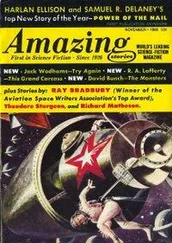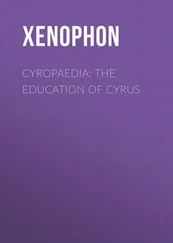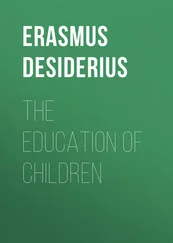I needed to be alone. Mum walked out, closing the door behind her. As she entered the adjoining room to tell my brother, I sat by myself, numb with shock, unable even to cry. I crawled into bed and prayed that what she had just told me was not true. If it was true, I told God, I needed to see my father again in heaven, where they would surely have pubs.
Now, in addition to mentally replaying the last time I had seen my dad, I was pierced with a new realization: for five years I had been waiting for him, but he had also been waiting for me. “He wanted me to come,” I thought. “And I never came.”
I could not understand why an inquisitive fourteen-year-old girl like me had not asked enough questions to learn that her father’s health was slipping. Why had I stupidly assumed the grown-ups would do what was best? Why hadn’t I insisted on flying over to see him? Why hadn’t I shown him that, despite the fact that I had gotten in the car with my mother that Christmas Eve, I was still his girl? Why hadn’t I found a way to help him? I seemed to have been thoroughly passive as my dad wasted away, by himself, across the wide Atlantic.
I buried myself under the covers—the duvet quilt from my old bedroom in Dublin—and shivered with a feeling of cold so deep that it felt as though my bones were being chilled from the inside.
I later learned that Susan had gone looking for my dad after she hadn’t heard from him in more than a month. When she opened his unlocked front door, she was overcome by the smell of what would turn out to be my dad’s decomposing body amid the stench of vomit and human waste. The derelict, filthy house—my former home—retained only the beds upstairs and the piano in the living room. The rest of the family belongings had been stolen or pawned off—even the kitchen cutlery and our toys.
Susan bravely made her way upstairs and found my deceased father, dressed in a suit as if ready to head out on the town.
He was lying not in his bed, but in mine.
I DID NOT TRAVEL back to Ireland for my father’s funeral in December of 1984. Mum was concerned that his friends and family would blame her—and me—for the downward spiral that ended in his death. She went alone, thinking that if I didn’t attend, I would be spared. This was a reasonable assumption: my dad’s younger sister did, in fact, verbally attack my mother just after the memorial service, screaming, “This is your fault!”
But by returning to school the day after I learned that my dad had died, I did not honor the pain that was tearing at me. By not flying back to Ireland, I took on another cause for regret. “You’re really not going to your father’s funeral?” one of my high school classmates asked me. Standing in front of my locker, holding a geometry textbook and a spiral notebook, I realized the mistake, but my mother had already departed.
My teenage brain had quickly established a clear, causal sequence. Nothing that a grieving family member yelled at me could have been worse than what I already believed. When I left Ireland, I left my dad; I didn’t visit my dad; and thus , he died. Had I not left, or had I at least returned to Dublin regularly, he would still be alive.
In my chain of logic—or responsibility—my mother didn’t really make an appearance. To this day, despite various therapists’ insistence that I must be repressing anger toward her, I don’t fault Mum for what happened. I have read widely on how children are quicker to blame themselves than to acknowledge their parents’ flaws and bad decisions. But for as long as I can remember reflecting on Mum’s actions, I have felt that several things were true at once. Yes, she should have actively sought out information about Dad’s health, and she should have brought my brother and me back to Ireland to see our father. But at the same time, she made her decisions with our well-being in mind. It wasn’t until I had my own family that I began to appreciate how young Stephen and I actually were when we had loitered in Hartigan’s, and how dangerous that environment would have seemed to my mother.
Mum knew our father—his virtues and his vices—as only one who had loved him deeply could. It had taken her years to reach the point where she was able to disentangle herself from him and their marriage. She knew that children can almost never give up on their parents, and she did not want Stephen’s and my image of Jim Power—large and luminous—to be replaced by something diminished. Years later, Susan would tell me about my dad’s emaciated condition in the final two years before he died. “Jim was no longer staring at the abyss,” she recalled. “He was in the abyss.”
Carrying around the grief from my father’s death made me more appreciative of the fact that Mum was healthy. I may have suffered a terrible loss in a terrible way, but I gave thanks to God for my good fortune—even though I now feared losing her too, I still had a mother I adored.
During the summer following my dad’s death, I traveled back to Ireland for the first time since that Christmas of 1979. I visited my paternal grandfather, “Bam Bam,” who was living with my aunt. Bam Bam had just turned ninety, but was still mentally and physically agile, driving a car and following sports and politics.
Not wanting to upset him, I rarely raised the subject of my dad’s absence from our lives. But over the years that followed, without any conscious decision on my part, I built the relationship with him I had wanted with my father. I would faithfully visit him for several weeks each summer; we would watch Irish football together and hurl complaints at the TV. And because he gave me the gift of living until the age of 101, I would share the ups and downs of my life with him in an exchange of letters that lasted for eleven years.
On the same visit that I laid this new foundation with my granddad, however, I got a jolt from my seventeen-year-old cousin, who had revered my father. She described how lonely he had been the last few times he had come to visit her mother. “You and Stephen were all he talked about,” she said. “The doctors won’t ever say it, but he died of a broken heart.”
It never dawned on me at fourteen to ask my cousin why, if my dad missed my brother and me so much, he had so rarely called, or why he had never gotten on a plane to visit.
He meant to. I was certain of it.
 4
4 
DIGNITY
I started at Lakeside High School in Atlanta, Georgia, in 1983, about a year before my father died. Once again, I was showing up at a new school in a new city where people spoke differently than I did—this time with Southern drawls. When Mum dropped me off, however, I quickly realized that I wasn’t the only new kid arriving that day.
Reporters hovered in the vicinity, waiting to see whether angry white parents would try to impede the arrival of hundreds of new African-American students. As I approached the main entrance, these students—who ranged in age from twelve to seventeen—were filing off a long row of school buses.
Some walked into the school seemingly determined to ignore the uproar that their arrival at Lakeside was causing. A few wore headphones and swayed to music as they disembarked, perhaps shielding themselves from the commotion. Others, less bold or armored, looked like they wished they could retreat back onto the buses.
When Mum and Eddie had moved to Atlanta, they had chosen our suburban neighborhood based on the reputed quality of this two-story public high school, known to be one of Georgia’s best in both academics and athletics. They hadn’t realized, however, that Lakeside was caught up in a long-running fight between black and white Atlantans about the area’s public education system. Just as we made Georgia our home, this conflict erupted into a racially charged firestorm.
Читать дальше

 4
4 










